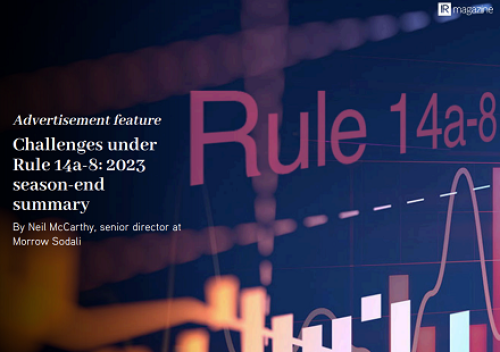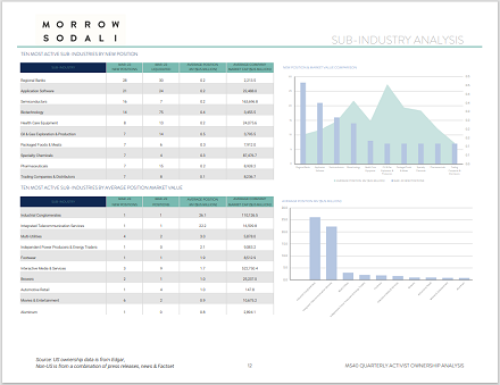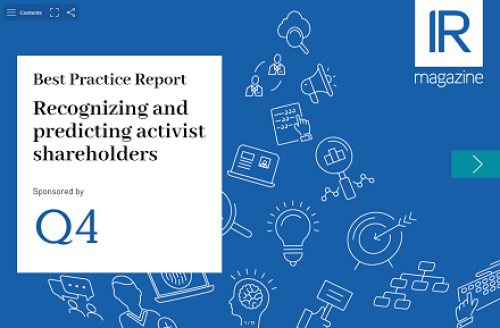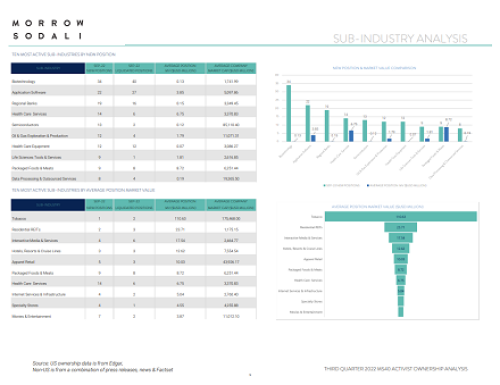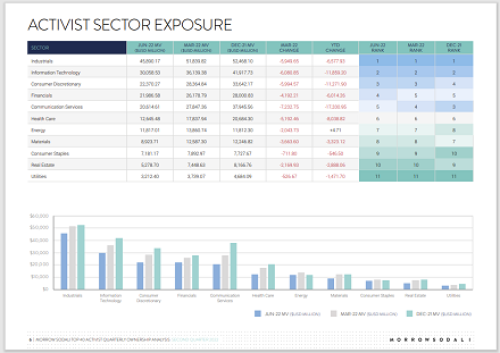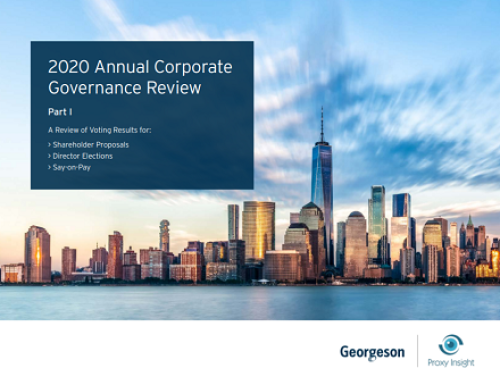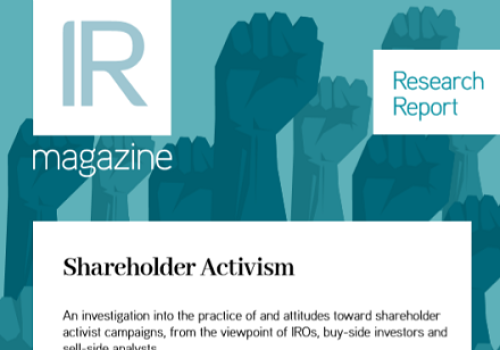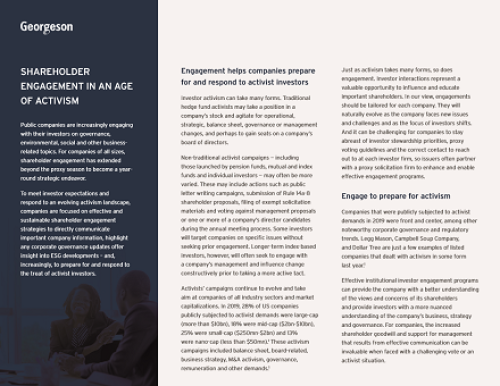A new report released by Diligent Institute finds an increase in successful ESG shareholder activism campaigns, with a lack of modern governance practices cited as a key catalyst for activist action.
Diligent’s report focuses on the steps companies are taking to be better prepared for shareholder activism, analyzing the governance data of companies targeted by investor activists. The sample includes data from 726 companies that engaged with investors, focusing solely on investor activism campaigns that were successful, unsuccessful, settled and/or withdrawn.
The research reveals that the number of ESG-related campaigns – and the impact and success of such campaigns – has risen year on year, despite a decline in investor activist campaigns overall in 2021 compared with 2020. From January to August 2021, 13 percent of ESG activist campaigns were successful, compared with 11 percent for the same period in 2020.
Commenting on the findings and their likely impact on future activity, Edna Frimpong, head of international research at Diligent, says: ‘If 2021 has taught us anything, it is that ESG is on the radar of investors and it is likely to remain so.
‘This year has shown that there is going to be great pressure on issuers and their boards to improve their disclosure on ESG practices, such as climate change targets and focus on diversity, equity & and inclusion (DE&I). Investor activism is also likely to move on from the corridors of small hedge fund firms to institutional investors with the aim of reducing universal risks in portfolio companies.’
Is it possible Covid-19 has affected the findings of the report? According to Frimpong there’s no clear-cut answer, but there are issues that need to be considered. ‘It might still be too soon to evaluate the ultimate impact of Covid-19 on shareholder activism,’ she says.
‘But the drop in share prices of issuers during the pandemic makes them very susceptible to shareholder activism. As the pandemic is ongoing, it will be especially practical for issuers to be prepared for future activism. IROs will have an extraordinary role to play in building shareholder confidence through active engagement and communication.’
It is perhaps unsurprising that a lack of modern governance practices is cited by Diligent as a big red flag for investor activism. Its research finds that companies targeted by activist investor campaigns consistently lag behind their peers in terms of the number of board members with skills in technology, compliance and sustainability. Furthermore, directors with that background account for just 1 percent of the study sample.
While IROs can’t control the skillsets of the C-suite, there are certainly steps they can take to help guard against activist campaigns, says Frimpong.
‘IROs serve as the guardians of a company’s reputation,’ she points out. ‘Their role is expanding and they need to know and understand what shareholders care about. In particular, IROs must gather acumen on what their peers are doing around topics on investors’ radars, such as climate action, DE&I and board skillsets. With this intelligence data, they can align their board to keep up with both peers and investor expectations.’

